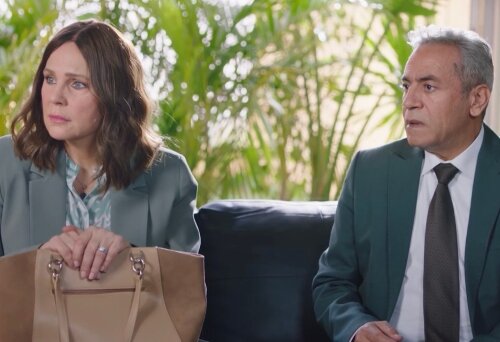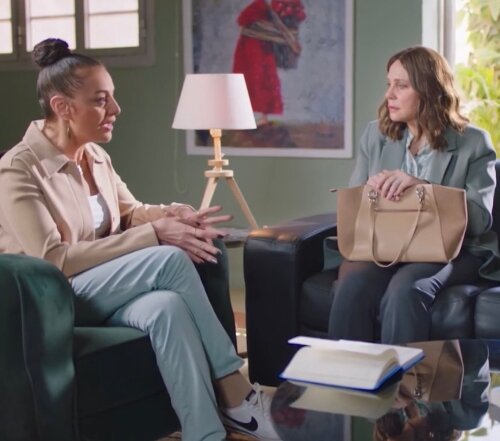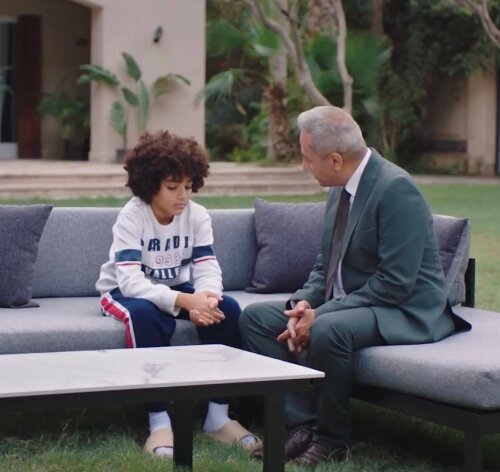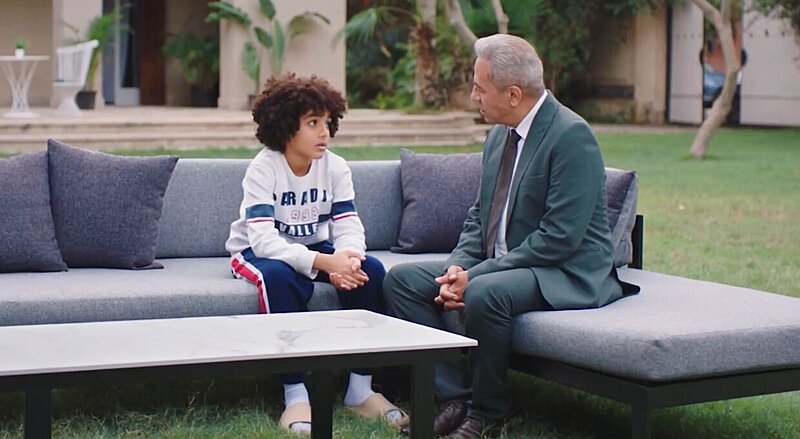The series "W Bena Meaad" part 2 has shed light on a crucial subject , and it's how to address the discovery of your kids watching p*rn videos. We are amazed that they have initiated this discussion because, in Eastern society, parents often consider such topics taboo, deeming them sensitive or inappropriate for conversation. In today's world, children are exposed to information much earlier than previous generations. Therefore, discussing topics as p*rn content with our children is vital, as it safeguards them from potentially harmful material. It also aids in building a foundation of communication and trust. This fosters an environment where children feel comfortable approaching their parents with questions or concerns.
6 Steps to Help You Manage Your Kids and Have a Calm Summer Vacation
What to do if you catch your child watching inappropriate videos?

Remain Calm
The first thing you should do is try to stay calm and composed. It's normal to feel a range of emotions, but reacting with anger or frustration can make communication less effective.
Avoid Embarrassing Them in Front of Others
It's crucial not to make them feel embarrassed or let anyone know about the situation of them watching pornographic videos, even very close people to them, as this may affect them and cause significant problems in the future.
Discuss the Situation With Them
It's very important to discuss the situation with them; you have to be brave to do that. Pick a suitable time and a quiet place to talk. Ensure there are no interruptions so you and your child can have an open and honest conversation. Keep reading we will discuss with you how to do that below.
How to Help Your Children Cope Through Your Divorce

Activate Parental Controls On Devices
Make use of parental controls on your devices to restrict access to inappropriate content. Pay attention to the websites they visit and the people they interact with on the internet. These controls act as an additional layer of protection, giving you the ability to manage the kind of online content your child can access. By putting these measures in place, you can establish a safer online environment for your child, effectively overseeing their internet activities and safeguarding them from potentially harmful material.
Consider Seeking Help if Needed
If you're finding it difficult to handle your child's exposure to inappropriate content by yourself, it's a good idea to seek professional help. A counselor, therapist, or mental health professional can provide valuable guidance and support tailored to your specific situation. They can help you figure out how to approach and manage the situation, advise you on what to say, and offer crucial assistance. These professionals are well-equipped to address the emotional and psychological aspects of such situations, providing support not only for your child but also for you as a parent in navigating through this sensitive issue. If you think it could lead to a more effective resolution, don't hesitate to reach out for help.
Parents Treating Their Children Based On Their Exam Grades Is A Disaster. Here's Why!
How to Start the Conversation With Your Child?

1. Plan for the Conversation
Prepare for the conversation by figuring out what you want to say and how to say it. Choose a private and comfortable setting. Consider having the talk during an activity you can do together, such as a long walk or in a car while driving somewhere, especially if you think it might be challenging to keep your child engaged in the conversation. Being in an environment where you won't be interrupted can make the discussion more relaxed for both you and your child.
2. Listen Without Judging
Encourage open communication without being judgmental. Let your child know you're there to support them in any situation. Listening is important because it helps you understand their point of view and deal with specific issues effectively. For example:
- "I appreciate you sharing this with me, and I'm glad you came to talk. You won't face consequences, but it's essential that we trust each other, resolve this, and move forward."
- "You don't have to share all the details if you're uncomfortable, but if we can have an honest conversation about what happened, I promise to listen and remain calm. Regardless of the outcome, we can work through this together, and I love you."
3. Ask questions To Your Child
Encourage a conversation with your child by asking questions. By asking about their feelings and what they know, you gain insight into their perspective without resorting to lecturing. For example, you can say:
1. Can we talk about what you were watching and how it makes you feel?"
2. "What led you to explore this type of content?"
3. "Do you have any questions or concerns about what you saw?"
4. "How did you come across this material, and do you know about the possible problems that can come from watching it?
5. “What do you think about relationships, intimacy, and respect based on what you've seen?”
6. "Do you know why some content may be considered inappropriate for your age?"
7. “Is there anything specific you are curious about or need more information on regarding relationships and intimacy?”
8. “Do your classmates talk about watching these type of videos online?”
9. “What's your view on your friends talking about or watching inappropriate content online? Do you agree with them?"
10. “How can we work together to establish guidelines for internet use and content that align with our family values?”

4. Now It's Time to Discuss Sex and P*rn
Starting the conversation can be challenging, but here are some ways to begin:
- "I'm not exactly sure how to bring this up, but we need to discuss sex and pornography."
- "I came across an article today about kids seeing explicit content at a young age. Can we talk about it?"
- "I need to discuss one of those awkward topics with you. Is that okay? If not, I respect that, and we can schedule a time to talk later."
For kids under 8 years old: It's important to find a balance between protecting them and not increasing their curiosity. If you're reasonably certain that your child hasn't encountered explicit content, bringing up the topic might spark their interest. In such cases, it's advisable to incorporate discussions about pornography within broader talks about subjects like sex, body protection, abuse, or other sensitive topics. When dealing with this situation, think about what aligns with your family values and what your child can understand at their age. Focus on how your child is feeling rather than getting into specific details about what they might have seen. Children in this age range might be uneasy, scared, or curious. While avoiding giving them too much information, be honest and open when responding to their questions.
For kids between 8 and 12 years old: They might start becoming curious about sex and sexuality. With the onset of puberty and adolescence, changes in their bodies and hormones can make them more interested in this topic. They might hear things from friends or at school and feel awkward about asking their parents for information about sex. Sometimes, they might actively look for information themselves or be exposed to images and videos, including pornography. You might have already discussed topics like puberty, body image, sex, gender, and keeping their body safe (from abuse) , but if not, now is a good time to start planning these conversations.
Why It is Important to Discuss P*rn With Your Kids ?
- It's crucial to talk to your kids about pornography to teach them what healthy and respectful relationships are like. Help them separate fantasy from reality and encourage them to have realistic expectations.
- Explain the addictive nature of pornography to your kids, making them aware of the risks. Understanding how it can become a habit may motivate them to make smart choices and avoid developing unhealthy habits.
- P*rn content can affect how kids feel and think. So, open conversations let you help them with any confusion or discomfort they might have, guiding them through their feelings.
- You have to let them know these p*rn videos doesn't mirror real life; as this can give children unrealistic ideas about body image and sexual behavior.
Talking openly about sensitive topics like pornography will help you build a foundation of communication with your kids and will help build trust. This creates an environment where they feel okay coming to you with questions or concerns.















